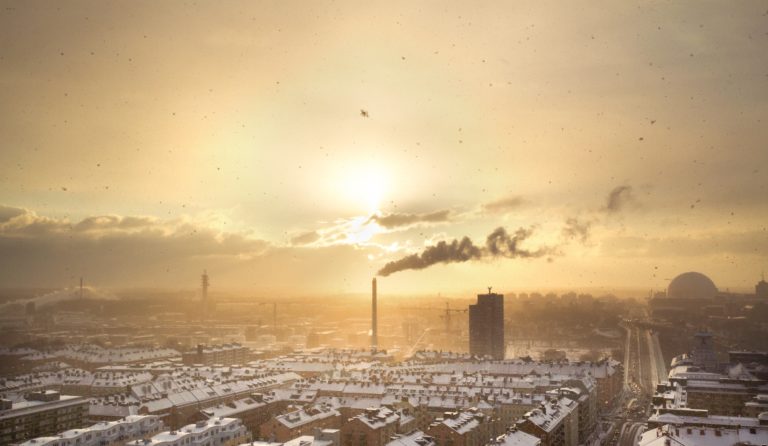by Hannah Schultz, Executive Editor
At first, the shorts and Chacos weather in February seems like a God-send: an end to the perilous cold and a chance to catch a few moments of sunbathing on the green before midterms hit. However, a nagging then starts in the back of your mind. When do you remember it ever being 77 degrees in February? Isn’t winter supposed to last another month? Is this normal?
According to The Atlantic, the U.S. set more than 2,800 new record high temperatures in February, following NASA announcing that 2016 was the warmest year on record. While many celebrate the unseasonably warm weather — and this isn’t the first time Lexington has hit the mid-seventies this early in the year — the larger warming trends shed light on bigger problems: human-caused climate change and apathy towards the health of the environment.
In the wake of these growing concerns, some refuse to acknowledge that economic bounties are not worth environmental devastation. In fact, President Donald Trump has vowed to dismantle the power of the Environmental Protection Agency. The EPA has done important work to improve the lives of Americans through enforcing regulations such as the Clean Air Act, which decreased air pollutants and, in turn, the premature mortality rate.
Most of us don’t recall what life was like before the EPA, but history is vivid in its warnings. From oil spills, to flaming rivers, to toxic smog events, life in the 1960s was marked by increased public distress due to the toll of modernity on the environment (see: DOCUMERICA, the photo-documentary project of the infant EPA in 1971).
It is striking to consider, for example, what kind of world it would be if Germany had won WWII, as the Amazon series “The Man in the High Castle” examines. But it is equally compelling to consider what kind of dystopian version of the U.S. we might live in if the EPA hadn’t been founded. And what kind of world will our children live in if we do nothing to stop climate change and human attacks on biodiversity?
While strides towards environmental accountability and sustainability have been made recently, we are in danger of slipping back into old habits. In the Brazilian Amazon, the world’s largest rain forest, deforestation rose in 2015 for the first time in nearly a decade, according to The New York Times. Trump has promised to compel the EPA to undue regulations that protect our water and cut greenhouse gas emissions, and approved construction of the Keystone XL and Dakota Access pipelines, which both present major spill hazards.
Some top policymakers in Washington, most notably Republicans, including Kentucky’s own Mitch McConnell, the Senate majority leader, are still climate change deniers. This is in spite of NASA’s confirmation that 97 percent of actively publishing scientists agree that climate-warming trends over the past century are extremely likely due to human activity and that climate change is a growing threat to society.
This trend is wider than Washington: the PEW Research Center says that while 90 percent of Democrats support the country doing anything it can to protect the environment, only 52 percent of Republicans agree with that stance.
“Restoring nature to its natural state is a cause beyond party and beyond factions,” said Richard Nixon, the founder of the EPA, in his 1970 State of the Union speech. Though Nixon will be remembered for other things, he did get that right.
Climate change should not be a partisan issue — you don’t have to be a “hippie, tree-hugging” Democrat to care about or believe in global warming. In fact, rural agricultural areas, which overwhelming voted Republican in the 2016 election, have been and will be the first to see the negative impacts of climate change.
Now is the time to put pressure on our government representatives to halt polluting or environmentally destructive activities and reverse climate change to prevent these negative consequences — from toxic smog for urban dwellers, to devastated crop yields for rural populations — before it’s too late.
“It is also vandalism wantonly to destroy or to permit the destruction of what is beautiful in nature, whether it be a cliff, a forest, or a species of mammal or bird,” said former-President Theodore Roosevelt, a Republican whose legacy of conservation earned us the National Park System. “Here in the United States we turn our rivers and streams into sewers and dumping-grounds, we pollute the air, we destroy forests, and exterminate fishes, birds and mammals. But at last it looks as if our people were awakening.”




